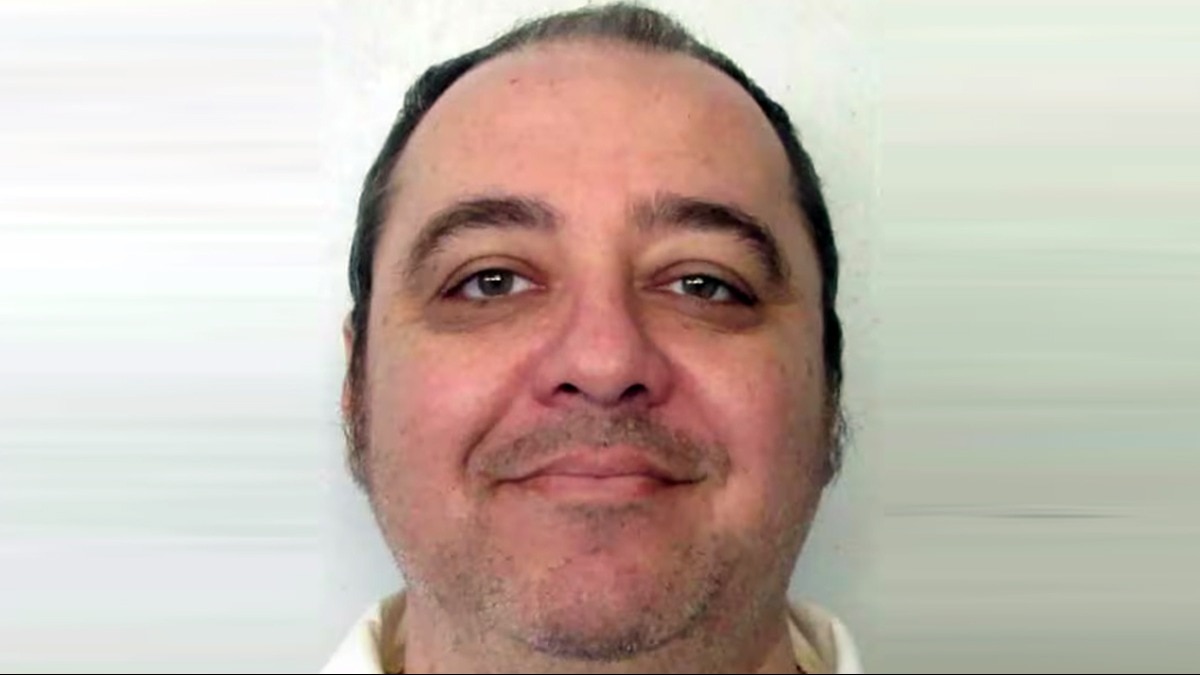2024-01-25 09:40:40
The US Supreme Court on Wednesday (local time) declined to stop the country’s first nitrogen execution in Alabama, which was scheduled for a convicted murderer. The convict, Kenneth Eugene Smith, survived a botched lethal injection in 2022, prompting authorities to explore more death penalty procedures, news agency Reuters reported.
The Supreme Court denied Smith’s request to pause his execution, rejecting his legal challenge that contended a second execution attempt by Alabama after the first failed attempt caused him severe trauma would violate the US Constitution’s Eighth Amendment protections against cruel and unusual punishment.
Smith was scheduled for nitrogen hypoxia execution in a 30-hour timeframe set by Alabama Governor Kay Ivey beginning at 12 am on Thursday and expiring at 6 am the following day.
WHAT IS NITROGEN HYPOXIA?
The Alabama Department of Corrections (ADOC) has developed a protocol for nitrogen hypoxia, which involves strapping the inmate to a gurney, fitting them with a mask and a breathing tube, and replacing breathable air with pure nitrogen.
This process is expected to induce unconsciousness within seconds and cause death within minutes, according to ADOC officials, who claim it to be the most painless and humane method of execution known.
Despite arguments from Smith’s attorneys that the nitrogen hypoxia method is riddled with unknowns and potential problems, and could lead to prolonged suffering or a slow death due to oxygen deprivation, the court did not find sufficient grounds to halt the execution based on these claims.
The execution method itself involves a respirator-type face mask that replaces breathable air with nitrogen, causing death from lack of oxygen.
While no state has previously used nitrogen hypoxia for executions, Alabama’s move could set a precedent for other states seeking alternatives to lethal injection due to difficulties in obtaining the necessary drugs.
WHY HAVE SMITH’S LAWYERS OBJECTED?
A federal appeals court had previously ruled that there was no doubt that death by nitrogen hypoxia was both new and novel, but Smith had failed to establish how it would violate the constitutional ban on cruel and unusual punishment.
Smith’s attorneys have argued that Alabama’s proposed procedure violate the ban on cruel and unusual punishment and that the face mask could interfere with his ability to pray.
Concerns have also been raised about the potential for a prolonged execution or leaving the inmate in a vegetative state if the mask is not airtight and oxygen seeps in.
Smith was convicted in the murder-for-hire slaying of Elizabeth Sennett, the wife of Charles Sennett, a pastor in 1988. He had previously survived a failed lethal injection attempt in 2022 when authorities were unable to connect the intravenous lines to his veins. Despite this, the Supreme Court’s decision allowed Alabama to move forward with the execution using nitrogen gas.
PREVIOUS APPEALS
The botched execution of Smith was the third consecutive instance in which Alabama officials encountered problems or delays inserting intravenous lines for a scheduled lethal injection, with two of the executions, including Smith’s, eventually called off, according to court filings, Reuters reported.
In May 2023, Smith challenged Alabama’s plan for a second execution attempt, asserting that it would violate the Eighth Amendment of the US Constitution. The first attempts, his lawyers, said, caused the convict to experience severe physical and psychological pain, including post-traumatic stress disorder.
In the first execution attempt, officials tried to place the necessary intravenous lines or a central line in Smith’s collarbone area, but the execution was called off after 11 pm (local time).
THE CASE
In 1988, Smith was convicted in the murder of Elizabeth Sennett after he and an accomplice were hired by Charles Sennett, her husband, who took out a large insurance policy on his wife, prosecutors said. Elizabeth Sennett was repeatedly stabbed and beaten with a blunt object.
Later, Charles Sennett committed suicide. Smith’s accomplice was also convicted and sentenced to death. His execution was done in 2010.
Alabama nitrogen gas execution, Alabama nitrogen hypoxia, US Supreme Court on Alabama nitrogen gas execution, Alabama convict nitrogen gas execution
Source link
7 total views , 1 views today
